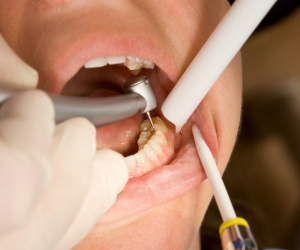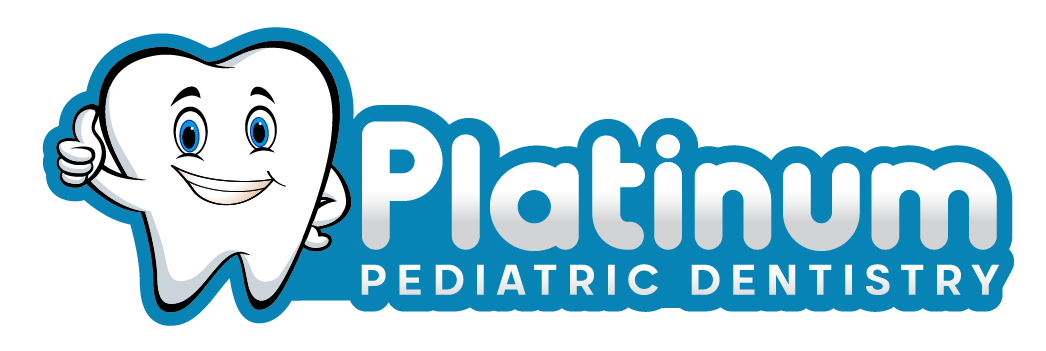 Stainless steel crowns protect baby teeth from decay and damage. Discover their benefits for Long Island children at Platinum Pediatric Dentistry.
Stainless steel crowns protect baby teeth from decay and damage. Discover their benefits for Long Island children at Platinum Pediatric Dentistry.For families in Long Island, the thought of restoring a damaged baby tooth might raise questions about the best option for treatment. One commonly recommended solution is the use of stainless steel crowns. At Platinum Pediatric Dentistry, we believe in providing treatments that protect your child’s oral health while prioritizing comfort and functionality. In this post, we’ll explain why stainless steel crowns are often the best choice for a baby tooth and how they support long-term dental development.
What Are Stainless Steel Crowns?
Stainless steel crowns (SSCs) are pre-formed metal caps that fit over a baby tooth to restore its shape, size, and strength. These crowns are widely used in pediatric dentistry due to their durability, affordability, and effectiveness in protecting teeth from further damage.
Unlike fillings, which repair only a portion of the tooth, stainless steel crowns cover the entire tooth. This makes them an ideal solution for teeth that are too weak or compromised to support other restorative treatments.
Why Are Stainless Steel Crowns Sometimes the Best Option?
-
Superior Durability
Stainless steel crowns are designed to withstand the heavy biting forces exerted by children. They are far less likely to crack, chip, or wear down compared to other materials, making them a long-lasting solution for baby teeth that are critical for chewing and alignment. -
Comprehensive Protection
Crowns provide full coverage, encasing the entire tooth. This protects the tooth from further decay, prevents sensitivity, and minimizes the risk of infection spreading to surrounding teeth. -
Cost-Effective and Time-Efficient
For parents, affordability and convenience matter. Stainless steel crowns are more economical than custom restorations like ceramic crowns, and they can typically be placed in just one dental visit. -
Ideal for Severely Decayed or Damaged Teeth
If your child’s tooth is weakened by decay or has undergone a pulpotomy (a baby tooth root canal), a stainless steel crown offers the support needed to preserve the tooth until it naturally falls out.
When Are Stainless Steel Crowns Used?
Pediatric dentists may recommend stainless steel crowns in the following situations:
- Extensive Decay: When a cavity is too large for a filling to effectively restore.
- After a Pulpotomy: To seal and protect the treated tooth.
- Developmental Defects: For conditions like enamel hypoplasia (weak enamel), where the tooth’s structure is compromised.
- Fractured Teeth: To restore functionality and appearance after accidental injury.
Benefits of Preserving Baby Teeth
Although baby teeth are temporary, they serve critical purposes, including:
- Guiding Permanent Teeth: Baby teeth act as placeholders for adult teeth, ensuring proper spacing and alignment.
- Aiding in Chewing and Speech: They help children chew food properly and develop clear speech patterns.
- Promoting Healthy Jaw Development: Keeping baby teeth intact supports the natural development of the jaw and surrounding structures.
Losing a baby tooth prematurely due to decay or damage can lead to issues such as misalignment, crowding, or difficulty chewing. Stainless steel crowns help avoid these complications by preserving the tooth’s function.
The Process of Getting a Stainless Steel Crown
The placement of a stainless steel crown is a straightforward and child-friendly procedure:
- Assessment and Diagnosis: The dentist evaluates the tooth’s condition using X-rays to determine the extent of decay or damage.
- Preparation: The tooth is cleaned, shaped, and treated to remove decay or infection.
- Fitting the Crown: A prefabricated stainless steel crown is placed over the tooth, ensuring a secure and comfortable fit.
- Final Adjustment: The crown is cemented into place, restoring the tooth’s functionality.
The entire procedure can often be completed in one visit, minimizing disruption to your child’s routine.
Addressing Common Concerns About Stainless Steel Crowns
Q: Are stainless steel crowns safe for kids?
A: Yes, they are widely used in pediatric dentistry and are considered safe and effective for restoring baby teeth.
A: Yes, they are widely used in pediatric dentistry and are considered safe and effective for restoring baby teeth.
Q: Will the crown affect my child’s smile?
A: While stainless steel crowns are metallic, they are typically placed on back teeth, making them less noticeable. For front teeth, alternative materials like tooth-colored crowns may be considered.
A: While stainless steel crowns are metallic, they are typically placed on back teeth, making them less noticeable. For front teeth, alternative materials like tooth-colored crowns may be considered.
Q: How long does a stainless steel crown last?
A: Stainless steel crowns typically last until the baby tooth naturally falls out, providing reliable protection throughout its lifespan.
A: Stainless steel crowns typically last until the baby tooth naturally falls out, providing reliable protection throughout its lifespan.
Q: Are there alternatives to stainless steel crowns?
A: Alternatives like composite fillings or ceramic crowns may be options for certain cases, but they may not offer the same durability or cost-effectiveness.
A: Alternatives like composite fillings or ceramic crowns may be options for certain cases, but they may not offer the same durability or cost-effectiveness.
Why Choose Platinum Pediatric Dentistry?
At Platinum Pediatric Dentistry, we specialize in making dental visits comfortable and stress-free for children. Our expert team has extensive experience in placing stainless steel crowns and other restorative treatments. We’ll work with you to ensure your child receives the care they need in a friendly, welcoming environment.
Q&A Summary
Q: What are stainless steel crowns, and why are they used?
A: They are durable caps that restore and protect baby teeth with extensive decay or damage.
A: They are durable caps that restore and protect baby teeth with extensive decay or damage.
Q: When is a stainless steel crown necessary?
A: For large cavities, after pulpotomies, or for teeth with developmental defects like enamel hypoplasia.
A: For large cavities, after pulpotomies, or for teeth with developmental defects like enamel hypoplasia.
Q: Why preserve baby teeth?
A: Baby teeth maintain alignment, aid in chewing and speech, and support proper jaw development.
A: Baby teeth maintain alignment, aid in chewing and speech, and support proper jaw development.
For more information, visit platinumpediatricdentistry.com or explore trusted resources like the AAPD and the ADA.
